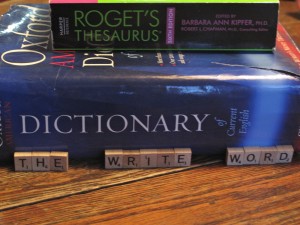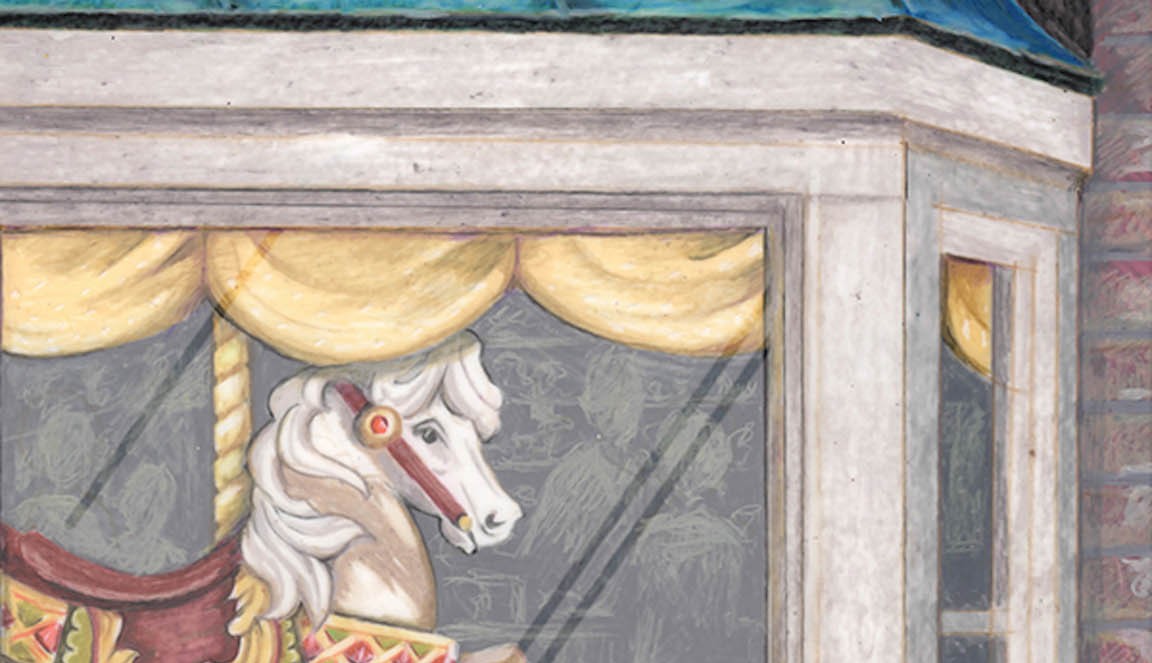“It’s always a bit of a struggle to get the words right, whether we’re a Hemingway or a few fathoms below his level.” - Rene J. Cappon

I used to play a game that went like this. Take a person’s first name and find all the words beginning with the same first letter that describes them. Here is what I am talking about.
Brid: brave, bold, bitchy, beautiful, bull-headed, blunt, bossy and bewitching
Franny: fragile, forthright, fearful, forlorn, fair, faithful, fraught and frustrated
My desire to be a writer probably started with my love of words. I began to walk late but that should come as no surprise to you as I have already told you I was a failure at jump rope. I mentioned this once to a friend who said, “I bet you TALKED early.” I probably did. I love to read and began collecting and storing words early, too.
I have always liked odd words; words like eschew and inchoate. At the age of four, my daughter once brought the waiting room at the local vet’s office to a stunned silence by telling our cat that his behavior was appalling. Guess where she learned that word?
This “wordiness” has been a handicap to me as a writer. Think about it. People don’t talk like that. They use simple words. Most four-year olds would tell the cat he was being bad. People often don’t follow the rules of grammar in their speech, either. How many times has someone leaned over to you and said, “Just between you and I…”
Writing dialogue is hard. Notice that I could have used: difficult, arduous, onerous, grueling, complicated, etc. But hard works fine. You understand what I mean. You have to make your characters sound like real people. The people you meet in Dunkin Donuts.
I found when I did create a character that spoke differently; I had to fight for her voice. Brid rarely uses contractions. The reason is because she learned to speak English as a child on the west coast of Ireland. As a result, she speaks more formally than some of the other characters in the story.
The issue of vulgar language also has to be handled carefully. Certain words have slithered their way into everyday speech. Read your Facebook newsfeed if you don’t believe me. I cringed when putting some of those words into the mouths of my characters in MacCullough’s Women. Of course, I have been known to use them, especially when I’m annoyed. Somehow it feels different when you see them written (by you!) on the page. They appear cruder and they are fixed as opposed to fleeting.
I agonized over using what my mother called when forced to address seeing or hearing it (usually as graffiti), “that F-Word” in MacCullough’s Women. Unfortunately, that word is here to stay and you hear it a lot. The characters that use it in my book do so because I feel they would. In an earlier draft of the book, I had Neil Malone use it. And then I removed it because I decided that no matter what the circumstances, he would not.
How do you feel about the use of profanity or coarse language in today’s books? I would love to know what you think.

Ah, dialogue. It’s not easy, it’s not hard it’s just how people talk. Except it can be so difficult and so frustrating! I have lived it two very disparate areas of the country. (Upper Mid-West and New England) and dialogue is very different in both places. I am a writer, so I always listen to not only what people say but how they say it. It’s fascinating, the differences and the similarities. Whew, that said then the astute writer must take into consideration the character that has been created, and everything changes again.
Language of the “blue” sort is always tricky. How much is too much, how much is too little? I wonder why my friends, (except for my writer’s group,) think writing is so easy???
I totally agree. Writing dialogue is HARD. In fact, writing anything is hard. I have a character raised in the south in my new book who has lived up North for many years. Her accent is pretty much gone unless she is very stressed. I am debating how to spell the word sugar. As in “Oh, Sugar!” Or should it be, “Oh, Sugah”? As for the blue words, they make me squirm and I use them reluctantly.